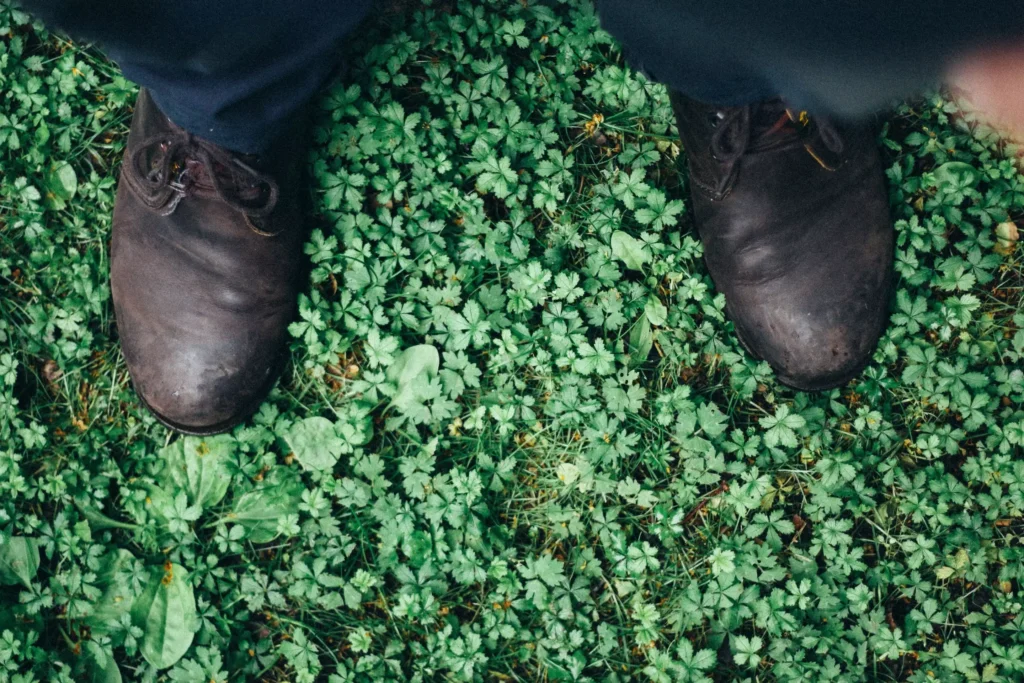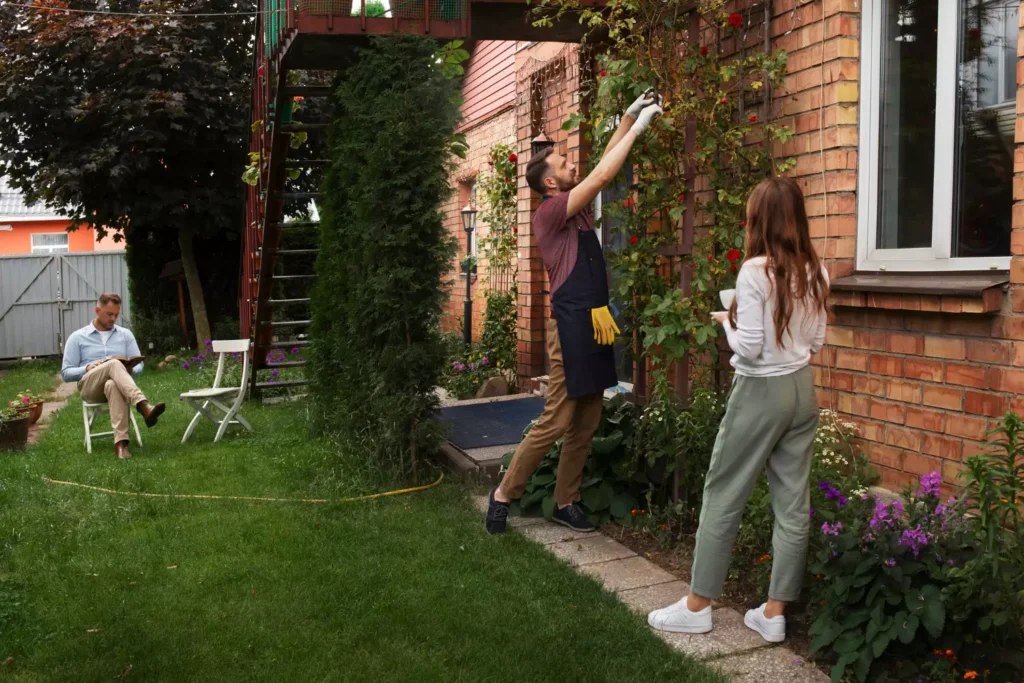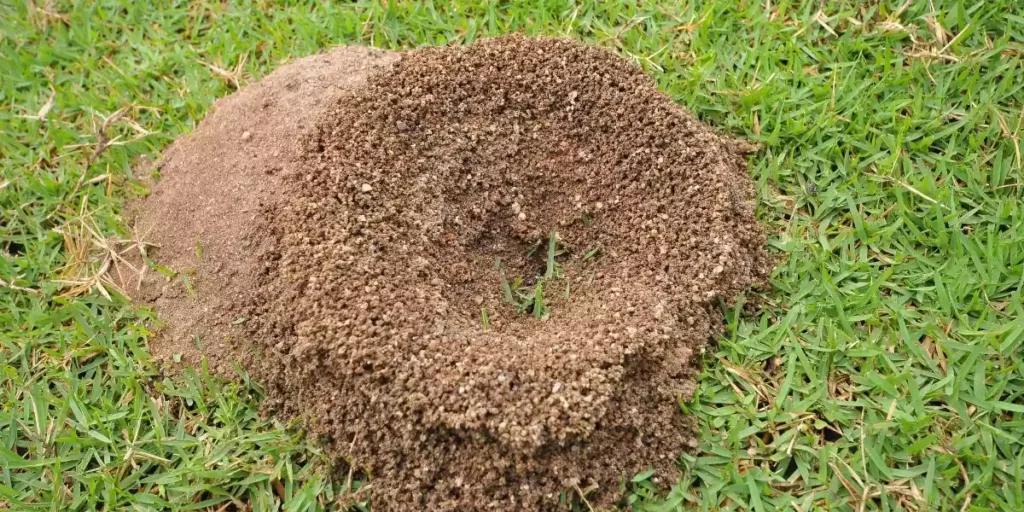Compost is often associated with a foul, sinewy smell. However, is this the proper association? The answer to this question may surprise you because healthy compost should not have a strong smell at all.
A well-maintained compost pile has a neutral, earthy smell, or smells like grass after a rainstorm or forest mulch. But if the compost has a strong smell of ammonia, rotting eggs, or is morbidly sweet, then clearly its balance is off.
Fortunately, a few small changes can help get it back on track. If you follow my tips, you’ll have nutrient-rich soil to add to your garden, plants or flowers.
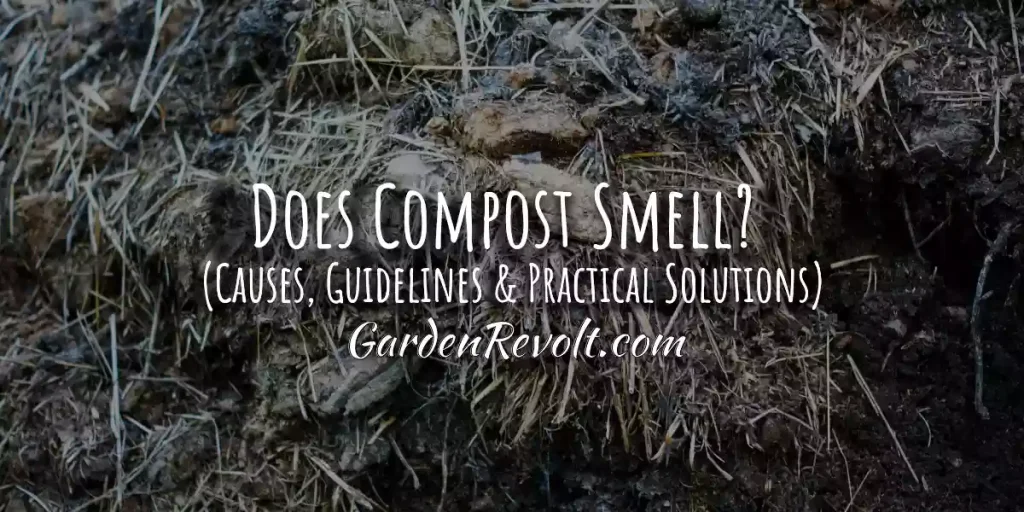
How to Get Rid of Odor from Compost Bins?
All compost bins give off some kind of smell. After all, they are full of decomposing kitchen scraps and plant matter! If your composter smells excessive, there are a few things you can do to control it.
Proper composting is a balancing act between the 4 basic components of compost: carbon, nitrogen, oxygen and water.
Typically, composting is as simple as taking out the garbage. You can move your kitchen scraps to the compost pile every day or two and not worry too much about balancing the contents properly. Most people mix in yard waste, such as grass clippings in the summer or dead leaves in the fall, which helps with balancing.
Sometimes, however, the wrong proportions of ingredients can accumulate in the contents of the composter, which can result in all sorts of unpleasant odours.
As you know, composting works best when it has the right balance of brown and green materials. Brown materials are things rich in carbon, like dry leaves or small branches. Green materials are nitrogen-rich materials, such as wet grass, green leaves and food scraps.
What Should the Compost Smell Like?
A healthy compost pile should not have an unpleasant smell. As a general rule, it should have a pleasant smell of forest soil.
If it doesn’t, something is probably wrong and it needs to be corrected. The exception is if you are composting pet faeces or manure. Some composters are designed to handle these materials.
However, they will still emit more odour than a composter that does not contain these materials. When dealing with animal waste, you can reduce the odour by adding extra newspaper, leaves or straw.
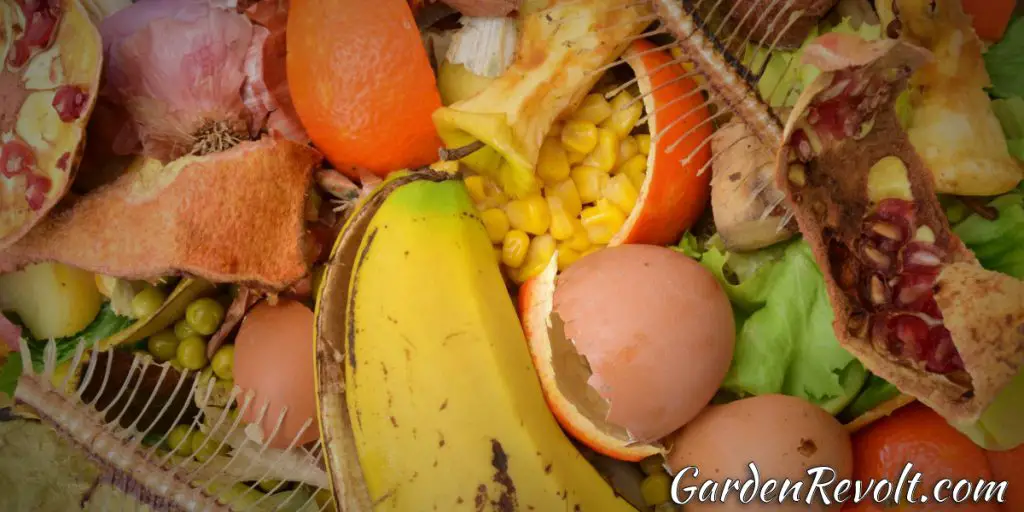
What Can Be Done If Your Compost Smells Sweet?
If you notice that your compost has a sweet smell, it’s possible that not enough oxygen is being supplied. This is quite common if you have a lot of grass clippings in your compost. Of course, we are talking about a morbidly sweet smell, not an ammonia smell.
Compost piles need the right kind of bacteria and other microorganisms to help decompose organic matter. These bacteria are known as “aerobic” bacteria. In other words, they need oxygen to survive.
Organic acids can emit a sweet smell when the grass begins to decompose and lacks oxygen. In other words, “anaerobic” bacteria have taken over the decomposition process (this is the method farmers use to make silage!). Aerobic bacteria love materials such as grass clippings and become active very quickly. In doing so, they consume all available oxygen.
The compost begins to heat up and becomes more compact. This means that the flow of oxygen is restricted because there is not enough structure for air to circulate.
The problem is that this anaerobic decomposition process is slower and, of course, much stinkier!
Here are some solutions Against Sweet Smelling Compost:
- Try drying out the compost
- Add more bronze to compensate for this
- Add structure with branching materials
- Create a layer of branches on the bottom to help drain water.
A huge pile of grass clippings can be wet and heavy. If the compost is particularly wet, it may be difficult to turn it. If this is the case, you can create some holes in your compost pile and fill them with drier structural materials, such as shredded cardboard. As these begin to decompose, your compost will even out and become easier to turn again.
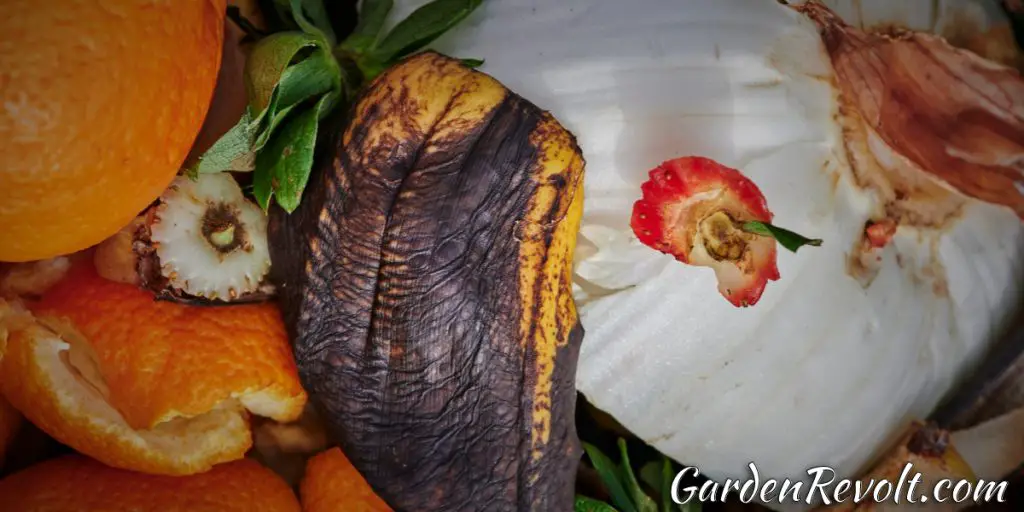
What To Do If My Compost Smells Like Ammonia?
Compost that has an ammonia smell is caused by excess nitrogen being released into the air. I always try to find the right balance and not add too many greens and nitrogen-rich materials to the compost pile. Ultimately, it comes down to experience and develop some sense of what is specifically needed in the compost.
To rebalance your compost pile with too much nitrogen, you can add brown materials such as cardboard, sawdust, straw or peanut shells. This will add extra “carbon” to your compost, which will help balance the nitrogen. Meanwhile, other brown materials, such as twigs, can help structure your compost.
If the smell is unpleasant and you want a quick solution, you can spread your compost on a sunny day so the ammonia can evaporate faster. Flipping your compost frequently will have a similar effect and is less of a hassle, but may take more time.
What To Do If My Compost Smells Rotten?
One of the worst smells a compost pile can give off is the smell of rotten eggs. If you notice that the compost has developed this smell, it means that there is not enough oxygen to allow aerobic bacteria to grow. The composter has likely been completely deprived of oxygen.
The rotten egg smell is a byproduct of smelly hydrogen sulfide from the compost mass, which has no air circulation.
Unfortunately, to get rid of the smell, you’ll have to … spend some time with your compost.
Turning your compost pile regularly loosens it and creates so-called air pockets that help aerobic bacteria thrive. The odour-causing anaerobic bacteria will naturally die out once oxygen is again present in the compost.
If you turn your compost regularly, but it still has a putrid odour, you may need to change the design of your composter.
You can free your compost from a rotten smell – Try to:
- Add a wooden pallet underneath,
- Make a substrate of branches (to allow airflow from underneath), or
- Add a few layers of sticks and garden waste from time to time – you will support it and allow you to create air pockets.
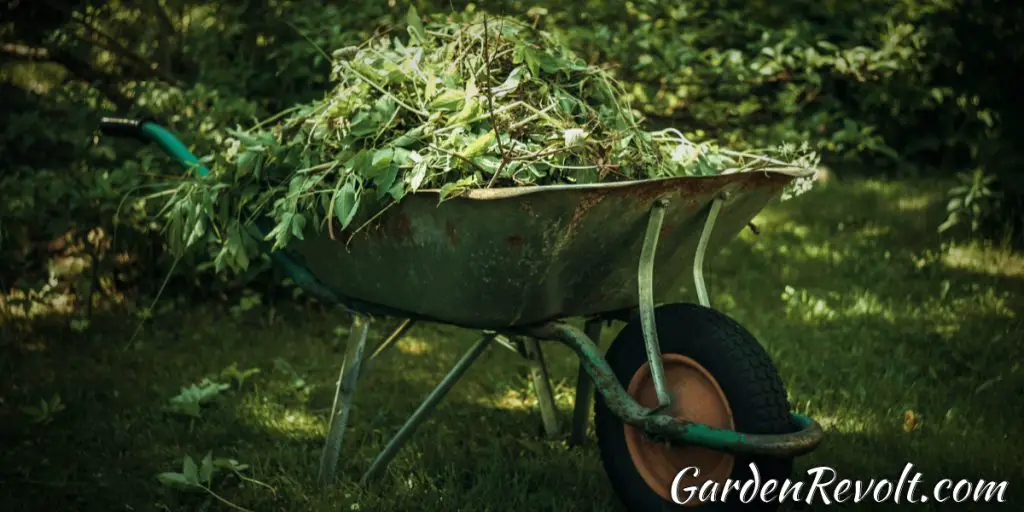
Are There Odorless Composters?
If you’re looking for a solution that’s convenient and free from possible bad odours, you may want to consider switching to a drum-style composter. The big advantage of this type of composter is the ease of turning. They also have a reputation for making compost faster, especially if you fill them in one go!
They are ideal if you have large amounts of grass clippings or soft, wet materials. As we already know, too much wet and nitrogen-rich material can cause odour problems and reduce the efficiency of the composting process.
Large compost drums produce compost more efficiently than smaller ones. I know from experience that they can reduce the size of grass clippings by half in a week, as long as you turn it daily!
Does Compost Need Oxygen?
Compost needs to be aerated regularly so that the bacteria and other microorganisms get the oxygen they need to grow. They can’t do their job if they can’t breathe!
Make sure your compost has good airflow. If you’re using a drum composter, be sure to turn it on at least once every couple of days. On the other hand, with this traditional option which is a standard compost pile, you need to turn it regularly with a fork. Unfortunately, this is a must.
Adding structural materials to the compost can help increase airflow (sticks, branches, a wooden pallet for the bottom, etc.).
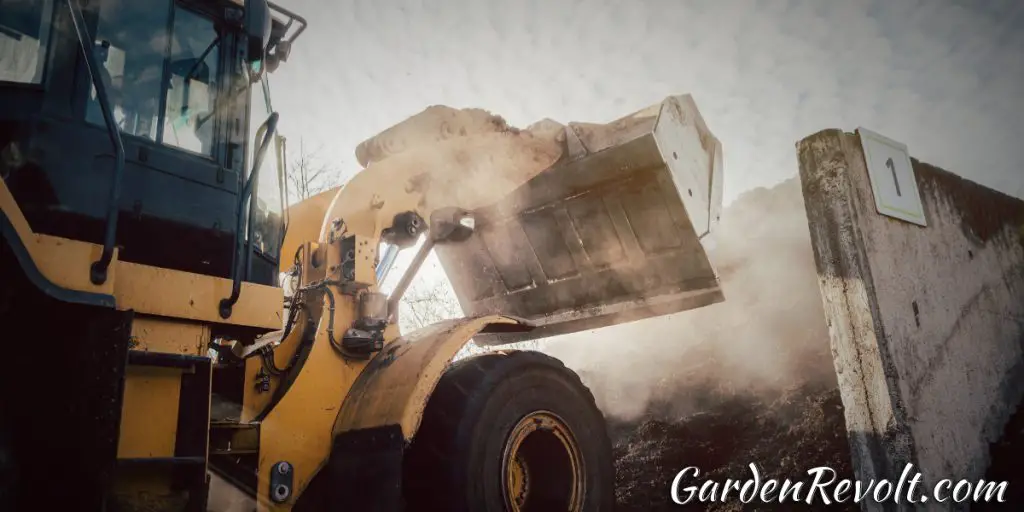
What to Do When Compost is Too Wet?
If the compost is exposed to moisture and is in a shady spot, it can become too wet over time. If the material in the compost is too dense and matted, it can absorb too much moisture. Wet compost can also lead to other problems, mainly a lack of oxygen.
As with the lack of oxygen, the best thing you can do to remedy this is to turn the compost pile regularly. Try turning it once a week or more often until it starts to dry out.
If wet compost is a constant problem, think about moving it to another location. Preferably in one that gets more sunlight and warmth. If the compost gets about 6 to 8 hours of sunlight a day, there’s a good chance you’ll get optimal results.
Compost Can Have Inadequate Levels of Nitrogen Relative to Oxygen
Too much or too little nitrogen in compost can lead to an obscene odour. The whole game is to ensure the right balance between green (nitrogen-rich) and brown (carbon-rich) materials. A healthy compost pile should consist of half and half green and brown materials. And it is best to combine about 20% green materials and 80% brown materials.
If at any time you find that there are too many food scraps and grass clippings in the compost, you can balance it out very easily. Just add some straw, shredded newspapers or other brown materials and mix them thoroughly.
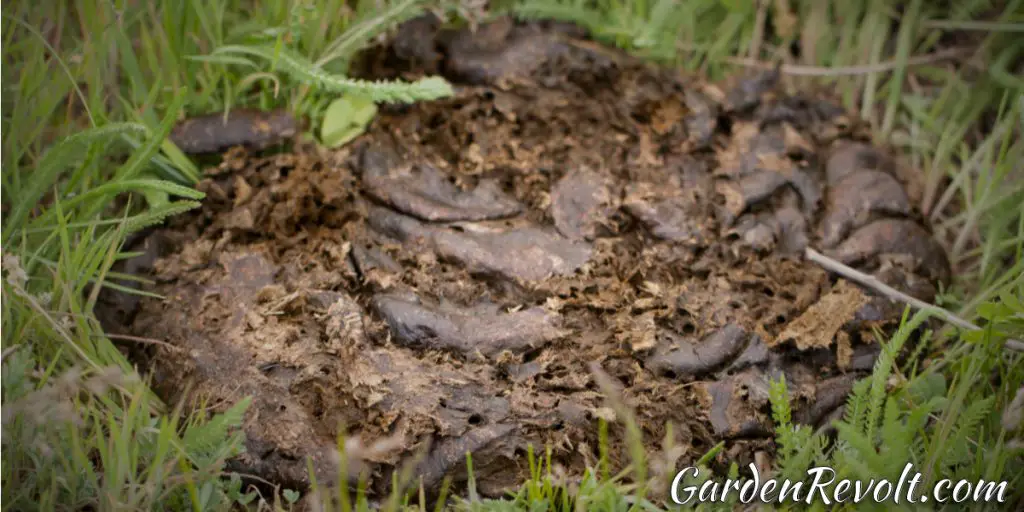
What If I Add Inappropriate Materials to the Compost?
Products such as dairy, meat, animal fat or oils should never be put into the compost pile. They will only give off more odours and also attract pests such as mice and maggots.
In general, it is not advisable to give the above-mentioned things unless you have experience in running a so-called hot compost pile.
Manure can be added to the compost, but you will have to take into account that this will intensify the smell. Also, I recommend doing this in small amounts, if you intend to do so at all. It is also worth remembering that manure can increase the ammonia smell in your compost.
Compost Could Have Insufficient Heat or Microbial Life
Compost only functions well at temperatures above 21°C. Below this temperature, there will not be the microbial life that is required to break down plant matter.
If your compost seems too dry, spray it with water from a garden hose. By doing so, you will add some moisture, and this can increase the amount of heat generated and strengthen the bacteria present. Don’t overdo the amount because the compost will get too moist. You can also add some moist materials.
In some cases, it may be that there are not many microbes in the compost. In such a situation, try adding some soil from your garden to the compost pile. This way you will add the missing microbes.
Some people also use organic compost starters. They help speed up the composting process. This procedure will maximize the amount of compost you can produce in the same amount of time.
How do you get rid of your compost pile?
However, if you decide that you want to get rid of your compost pile because you can’t handle the bad smell or most simply want to reclaim extra space in your garden, simply scatter the compost under trees or shrubs in an inconspicuous place. Nature will take care of the rest.
Next, it’s a good idea to dismantle your compost pile. Depending on whether you built it yourself or bought a ready-made plastic container beforehand, you can still use its elements (well-behaved boards, mesh, rods, etc.) or throw it away or sell it. Later, all you have to do is level the area where the pile was and plant grass, flowers or new trees.

